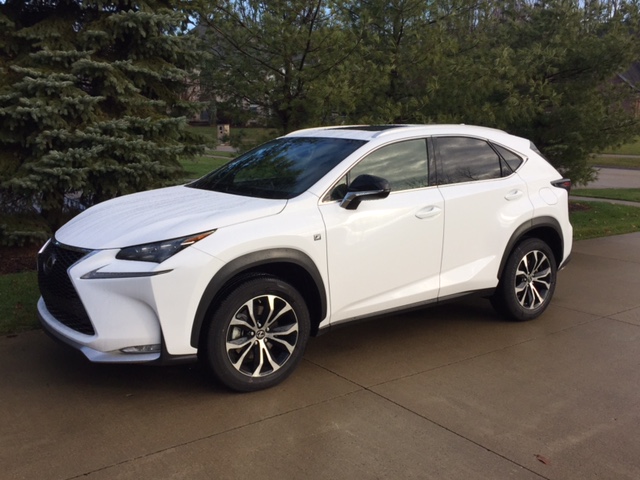
Cars rarely fail without warning. Long before something breaks, your vehicle sends signals, such as new noises, unusual smells, dashboard alerts, leaks, or changes in how it drives. The problem is that most drivers get used to small issues and only react when the situation becomes serious (and expensive).
Paying attention early can save you money, prevent breakdowns, and keep you safe on the road. Here’s how to recognize the warning signs that something is wrong and when it’s time to get help from a professional.
Common Signs Your Car Might Have a Problem
Cars communicate in predictable ways. Whether it’s a dashboard light, a strange sound, or a sudden vibration, these symptoms usually appear before major damage occurs. Knowing what they mean helps you act fast and avoid major repairs.
Dashboard Lights You Should Pay Attention To
Modern cars rely heavily on sensor alerts. Some lights are mild reminders, others mean “stop driving now.”
Here are the most important ones:
- Check Engine Light: This can be a loose gas cap or a serious engine issue. Various problems, such as a faulty sensor or emissions issue, can trigger this alert. The car’s computer monitors these systems and activates the light when it detects a problem. If it’s flashing, pull over immediately.
- Oil Pressure Light: Low oil pressure can destroy the engine quickly. The onboard computer keeps track of oil pressure and will alert you if it drops too low. Don’t ignore this one. Stop driving and check your oil.
- Temperature Warning Light: Overheating can crack the engine block or blow a head gasket. Turn off the AC and pull over to let the engine cool.
- Brake Warning Light: This could mean low brake fluid, worn pads, or a failing system.
- Battery or Charging Light: Often points to a failing alternator. Your car may die suddenly if ignored.
If you’re unsure whether a used or older car has a history of major engine or brake issues, you can run a VIN check or vehicle history report before taking it on long trips.
Noises That Mean Something Is Wrong
Cars are not supposed to squeal, grind, clunk, or hiss. Noises are often the earliest sign of a mechanical issue.
- Squealing brakes – usually worn brake pads
- Grinding noises – can indicate rotor damage, metal-on-metal contact, or even transmission or brake issues that require immediate inspection
- Knocking from the engine – low oil, ignition problems, or faulty spark plugs can all cause this symptom
- Clunking over bumps – worn suspension parts
- Hissing – coolant or vacuum leaks
Difficulty in starting or operating the car often accompanies these warning noises.
Signs You Notice While Driving
Sometimes the problem isn’t a sound, it’s the feel of the car. Any change in how your vehicle drives should be taken seriously.
- Car pulls to one side: Often caused by alignment issues or uneven tire pressure.
- Vibrations in the steering wheel or seat: Could indicate wheel balancing problems or damaged tires.
- Slow or weak acceleration: Points to engine trouble, clogged filters, or transmission problems.
- Jerking or shaking during shifts: A common sign of transmission issues, which may get worse if ignored. A slipping transmission or problems with the gears can also cause jerking or shaking during shifts.
- Soft or overly hard brake pedal: Indicates air in the brake lines, low brake fluid, or a failing brake system.
Ignoring these signs can cause the engine to overheat or lead to more severe damage.
If you notice performance issues and want clarity before finding a mechanic, a car diagnostic test or basic vehicle history search can help identify past repairs or recurring problems.
Smells and Leaks You Should Not Ignore
Your nose can detect issues your sensors don’t catch.
- Sweet smell → coolant leak
- Burning oil → engine oil leak
- Burning rubber → slipping belt
- Electrical burning → wiring problem
- Rotten egg smell → catalytic converter failure
Leaks also tell their own story:
- Green or pink fluid → coolant
- Dark brown or black → engine oil
- Red → transmission or power steering fluid
- Clear water → normal condensation from AC
If leaks appear often, it may be time for radiator repair, AC service, or front-end inspection.
Car AC and Electrical Problems to Watch For
AC and electrical systems are deeply connected to your car’s sensors and safety components. Early signs include:
- AC blowing warm air: Could be low refrigerant, a bad compressor, or a leaking line.
- Flickering or dim headlights: Often a sign of alternator trouble or electrical shorts.
- Slow cranking: A failing battery or starter.
- Power windows or locks not working: A simple fuse problem or early electrical failure.
When Small Issues Turn Into Expensive Repairs
Many major repairs start as small, cheap problems, such as a minor leak, a little vibration, or a faint noise. Ignoring small warnings can lead to:
- engine overheating
- brake failure
- transmission damage
- suspension collapse
- electrical burnout
Fixing a $40 part early might prevent a $2,000 repair later.
How to Prevent Bigger Problems
Staying ahead of car issues is easier than most drivers think:
- Keep up with oil changes
- Check fluids monthly
- Rotate and inspect tires
- Listen for new noises
- Don’t ignore dashboard lights
- Inspect brakes every 6–12 months
- Run a VIN check or recall lookup before buying a used car
- Take your car in for inspection at the first sign of trouble
Should You Fix It Yourself or Visit a Professional
Some minor tasks are safe for DIY, but others should only be handled by experts.
What You Can Do Yourself
- Replace wiper blades
- Check and top up oil
- Add washer fluid
- Replace air filters
- Inflate tires
These tasks are cheap, quick, and beginner-friendly.
When You Need a Professional
You should visit a mechanic when:
- You hear grinding, knocking, or clunking
- The AC no longer cools
- Dashboard warning lights stay on
- Braking feels weak or uneven
- The car shakes at high speeds
- The engine overheats
- There are repeated leaks
- The transmission behaves oddly
Choosing the right repair shop early can prevent breakdowns and keep repair costs manageable.
FAQs
What are the most common car warning signs?
Dashboard lights, strange noises, vibrations, leaks, and smells.
What smells should I take seriously?
Burning oil, electrical burning, or rotten egg smell (catalytic converter).
Why does my car shake at certain speeds?
Often due to tire imbalance or worn suspension.
Which leaks are dangerous?
Oil, coolant, and transmission fluid leaks should be addressed immediately.
What dashboard lights mean emergency?
Oil pressure light, temperature warning, and flashing check engine light.
When should I stop driving right away?
If the engine overheats, brakes feel weak, or a major warning light appears.
How do I know if I need a mechanic?
If the problem repeats, grows worse, or affects safety, get professional help.


